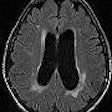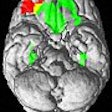Neuroradiology: Page 208
Amicas signs distribution pact with NeuroLogica
February 26, 2007
CT spot sign predicts hematoma expansion in stroke patients
February 25, 2007
Seattle facility installs NeuroLogica CereTom
February 22, 2007
ASPECTS stroke scoring improved with perfusion CT
February 20, 2007
BrainLab wins patent victory
February 7, 2007
Bio-Imaging completes Theralys acquisition
February 6, 2007
MRI should be preferred test for suspected acute stroke
January 25, 2007



